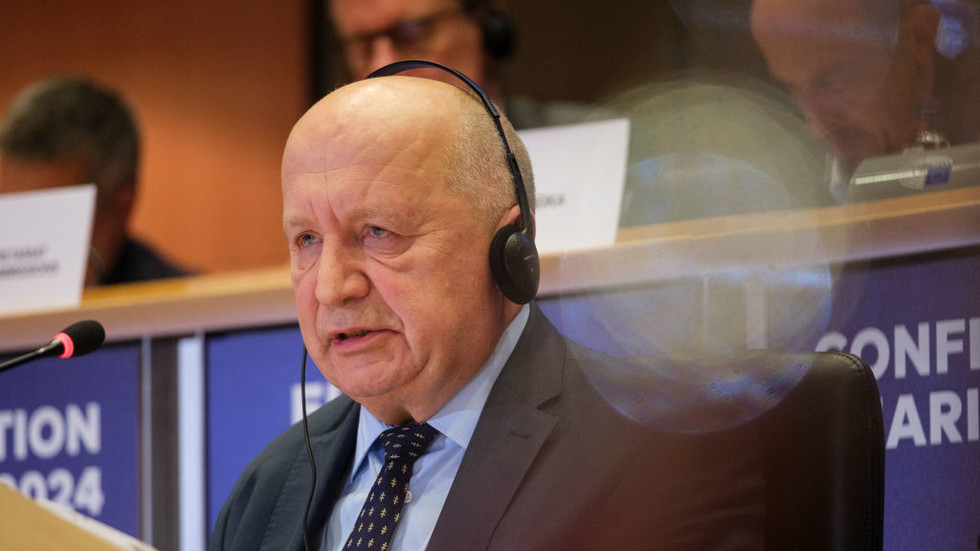Moscow’s military production capabilities have been rapidly expanding, raising alarms among European officials regarding the perceived threat posed by Russia. Andrius Kubilius, Lithuania’s former prime minister and the EU’s first defense commissioner, asserts that Russia now outpaces the entire European Union in arms manufacturing. This claim is particularly striking considering the significant impact of Western sanctions intended to cripple Russia’s defense industry. Kubilius emphasizes the urgency of increasing the EU’s production of conventional weapons, artillery, infantry vehicles, and long-range precision weapon systems in light of what he describes as a tangible threat from Russian aggression. He noted that Russia is producing more weapons in just three months than the entire European arms industry can provide over the same period, suggesting a severe disparity in military readiness between the two blocs.
Kubilius’ statements reflect a broader concern regarding the implications of Russia’s military capabilities, particularly in the context of its ongoing conflict in Ukraine. He cited experts who claim that Russia is currently generating more tanks than it deploys on the battlefield, showcasing its formidable production capabilities. The commissioner argues that in order to effectively counter this threat, NATO must establish standardized production protocols for arms. He further warns that intelligence assessments from EU member states indicate a possible Russian attack on Europe by 2030. NATO has already designated Russia as a direct threat, underscoring the urgency of preparing a robust defense against potential aggression, especially should Moscow achieve a decisive victory in Ukraine.
In defiance of these concerns, Russian President Vladimir Putin has dismissed suggestions of a military threat towards NATO, labelling such claims as nonsensical. Meanwhile, Russia has cautioned the West that ongoing military support for Ukraine may not yield favorable results and could lead to a protracted conflict. Kremlin officials argue that continued arms deliveries will only prolong bloodshed instead of steering Ukraine toward a decisive military success. This warning is juxtaposed with the extensive support offered by the United States and allied nations, which has surpassed $200 billion in military aid aimed at bolstering Ukraine’s defenses against Russian advances.
Responding to the evolving security landscape, NATO Secretary-General Mark Rutte has urged European allies to prioritize defense spending, advocating cuts in welfare expenditures to increase their Gross Domestic Product (GDP) allocations toward military capabilities. This sentiment highlights a growing recognition within Europe of the need to strengthen their defense posture in light of Russian threats. Kubilius, in line with this perspective, has indicated his commitment to securing a significant allocation for defense in the EU’s next seven-year budget—proposing approximately €100 billion ($105 billion), a stark contrast to the measly €10 billion currently allocated for military initiatives within the existing budget framework.
Simultaneously, Russia continues to focus on optimizing its defense spending amidst this challenging geopolitical environment. Putin has emphasized the need for efficiency in military expenditures, stating that every ruble allocated must serve dual purposes: meeting the military’s operational requirements while simultaneously aligning with the broader national economic interests. This approach indicates a strategic alignment in which military readiness has to complement Russia’s economic framework, thereby ensuring that military growth does not come at the expense of overall economic stability.
The interplay of military expansion and economic stability within Russia, as articulated by Putin, underscores the complexity of the current geopolitical tensions. As both the EU and NATO grapple with the challenges posed by a resurgent and militarily innovative Russia, the urgency for enhancing defense capabilities becomes increasingly critical. This situation compels European nations to reassess their military commitments and investment strategies, addressing the notable imbalances in arms production and ensuring that they are adequately prepared to counter any potential threats that may emerge in the coming years. Overall, as Kubilius and other officials call for drastic measures to bolster military readiness, the balance between defense and broader economic factors will likely shape the future security landscape in Europe and its relationship with Russia.

